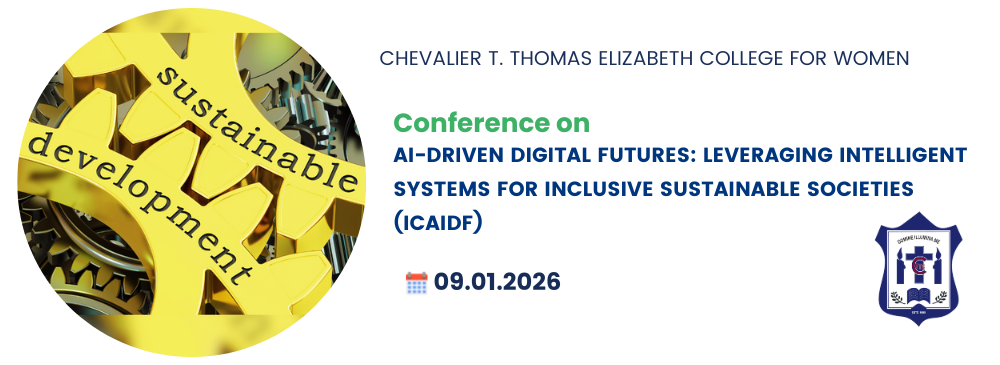
Artificial Intelligence (AI) and intelligent systems are transforming the way societies function, offering unprecedented opportunities to create inclusive and sustainable digital futures. The role of AI extends far beyond automation and data processing; it encompasses innovation, ethical decision-making, and collaboration across diverse fields. By harnessing these technologies, stakeholders can address some of the most pressing global challenges while ensuring equity and sustainability.
A central aspect of this transformation lies in the potential of AI to bridge inequalities. Intelligent systems can democratize access to education, healthcare, financial services, and information, especially in underserved communities. By making critical resources more accessible, AI can empower marginalized groups, reduce the digital divide, and foster social inclusion.
At the same time, sustainability has emerged as a global priority. AI contributes significantly by enabling efficient energy management, smart cities, climate change mitigation, and sustainable agriculture. Through predictive analytics, resource optimization, and intelligent monitoring, However, the adoption of AI must be grounded in ethical practices. Issues such as bias in algorithms, privacy concerns, and accountability call for a robust ethical framework. This requires interdisciplinary collaboration between researchers, scientists, policymakers, and industry leaders, ensuring that innovation aligns with human values and respects societal norms.
Its applications span across medicine, engineering, social sciences, and environmental studies, bringing together diverse expertise to solve complex problems. Collaborative platforms can accelerate research, enhance transparency, and encourage knowledge sharing on a global scale.
Selected papers will be published with an ISBN number
Last Date for Registration: 30.12.2025
Last Date for Submission of Full Paper: 30.12.2025
Kindly send your camera-ready paper to the following email address:
Bank Name: State Bank of India
Beneficiary Name: C.T.T.E. College
Branch: Perambur, Chennai
Account Number: 10313551041
IFSC Code: SBIN0002256
Address: 1/110, Madhavaram High Road, Perambur, Chennai-11
The Registration & Publication (Soft Copy) fees can be paid through NEFT (or) G-pay using the bank transfer option.
Honourable Justice . B. Gokuldas
Former Judge , Madras High Court
Chairman, C.T.T.E. Trust
Thiru. L. Palamalai I.A.S. (Retd.)
Managing Trustee & Correspondent
C.T.T.E. Trust
Dr. S. Sridevi
Principal
C.T.T.E. College for Women
Dr. P. J. Queency Asha Dhas
Vice-Principal
C.T.T.E. College for Women
Dr. Prasanna Kumari V
Professor & Head,
Department Information Technology,
Rajalakshmi Engineering College, Chennai
Dr. Udhayakumar A
Associate Professor & Head,
Department of Computer Applications &
Software Applications,
Agurchand Manmull Jain College, Chennai
Dr. Ramesh Kumar M
Associate Professor & Head,
Department of Computer Science,
Govt. Arts College, Nandanam, Chennai
Dr. Priya Iyer K B
IQAC Coordinator, Associate Professor,
Department of Computer Science and Information Technology,
M.O.P. Vaishnav College for Women(Autonomous), Chennai
Mrs. Kalaivani C
Head of the Department,
Department of Artificial Intelligence and Data Science,
Muthayammal Memorial College of Arts and Science, Salem
Dr. K. Jaganeshwari
Head & Assistant Professor,
Department of Computer Applications,
C.T.T.E. College for Women
Mrs. J. Saranya
Assistant Professor,
Department of Computer Applications,
C.T.T.E. College for Women
Mrs. S. Poornima
Assistant Professor,
Department of Computer Applications,
C.T.T.E. College for Women
Mrs. C. Kausalya Devi
Assistant Professor,
Department of Computer Applications,
C.T.T.E. College for Women
Mrs. G. Ramya
Assistant Professor,
Department of Computer Applications,
C.T.T.E. College for Women
Ms. Y . Aarthi
Assistant Professor,
Department of Computer Applications,
C.T.T.E. College for Women
Mrs. S. Nilofar Fathima
Assistant Professor,
Department of Computer Applications,
C.T.T.E. College for Women